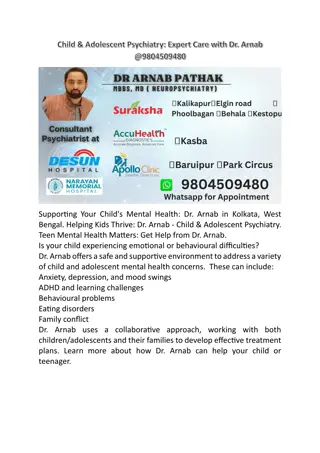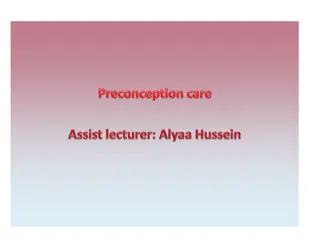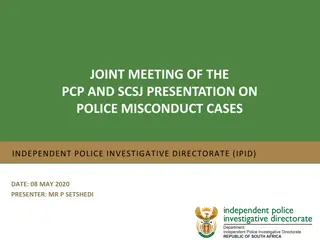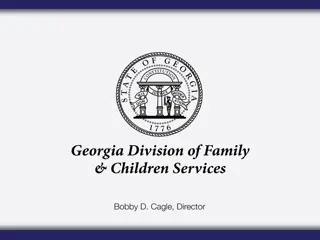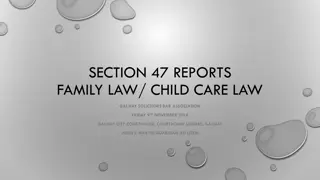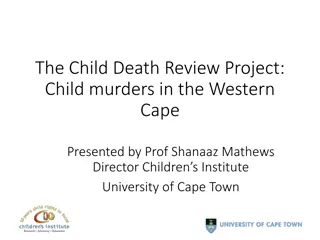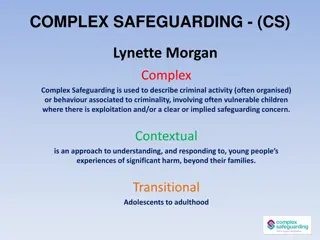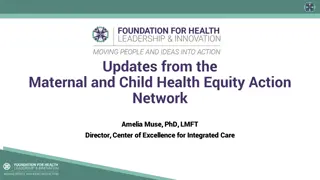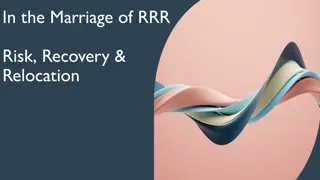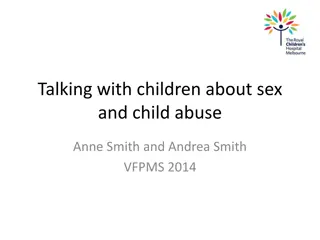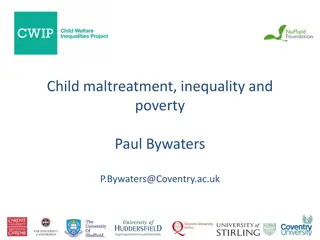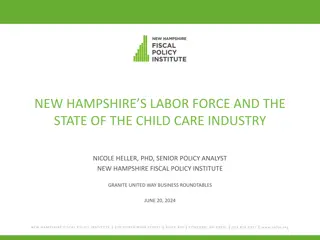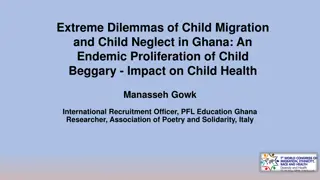Complex Child Health Cases
Dive into the nuances of Medical Unexplained Symptoms (MUS), Fabricated or Induced Illness (FII), and Perplexing Presentations (PP) to better manage challenging child health cases. Learn key operating principles emphasizing child safety, collaboration among agencies, and the importance of shared information.
Download Presentation

Please find below an Image/Link to download the presentation.
The content on the website is provided AS IS for your information and personal use only. It may not be sold, licensed, or shared on other websites without obtaining consent from the author.If you encounter any issues during the download, it is possible that the publisher has removed the file from their server.
You are allowed to download the files provided on this website for personal or commercial use, subject to the condition that they are used lawfully. All files are the property of their respective owners.
The content on the website is provided AS IS for your information and personal use only. It may not be sold, licensed, or shared on other websites without obtaining consent from the author.
E N D
Presentation Transcript
Perplexing Presentations Fabricated Illness Induced Illness A Gloucestershire Multi-Agency Protocol
WHAT DO WE HOPE TO ACHIEVE? Difference between: Medical Unexplained Symptoms (MUS) Fabricated or Induced Illness (FII) Perplexing Presentations (PP) How agencies can work together more effectively to manage these cases
DEFINITIONS Medical Unexplained Symptoms (MUS) The child s symptoms, of which the child complains, are genuinely experienced, are not fully explained by any known pathology but with likely underlying factors in the child (usually with a psychosocial nature), and the parents/caregivers acknowledge this to be the case. The health professional and parents work collaboratively to achieve evidence-based therapeutic work in the best interests of the child. MUS can also be described as functional disorders and abnormal body sensations which cause pain and disability by affecting the normal function of the body.
DEFINITIONS Fabricated or Induced Illness (FII) FII is a clinical situation in which a child is, or is very likely to be, harmed due to caregiver(s) behaviour and actions, carried out in order to convince doctors and other professionals that the child s state of physical and/or psychological health is impaired (or more impaired than is actually the case). FII results in emotional and physical abuse, and neglect including iatrogenic harm.
DEFINITIONS Perplexing Presentations (PP) Presence of alerting signs when the actual state of the child s physical/mental health is not yet clear but there is no perceived risk of immediate serious harm to the child s physical health or life.
Key Operating Principles Safety and welfare of the child is paramount Transparent and on-going dialogue between agencies, practitioners and parents The need for sharing information Parental behaviour may be motivated by anxiety and erroneous belief about the child s health The identification of a lead professional The development of a comprehensive account of the child s involvement with health and establishing a professional consensus Advocacy for child and parents/carers Social care practitioners to be supported by Advanced SW Practitioners A Health and Education Rehabilitation Plan (HERP)
Alerting Signs - PP Context Experience of parents/carers Nature of relationships parents/carers and health practitioners In the Child Reported physical/psychological or behaviour symptoms not observed Unusual results of investigations Characteristics of the illness may not be physiologically possible Unexplained impairment of child s daily life
Alerting Signs - PP Parent Behaviour - Parents insistent on continued investigation/drastic treatment - Repeated reporting of new symptoms - Repeated presentations to and attendance at medical settings - Inappropriately seeking multiple medical opinions - Providing reports from doctors from abroad which conflict with UK medical practice
Alerting Signs - PP Parent Behaviour - Child repeatedly not brought to appointments/cancellations - Parents/carers not able to accept reassurance/recommended management, insistence on more investigations - Objection to communication between professionals - Frequent vexatious complaints - Not letting the child be seen on their own/talking for the child - Repeated/unexplained changes of school
Alerting Signs Immediate serious risk to child s health/life Urgent referral to children s social care due to suspected or actual FII Securing of any potential evidence Consider if child needs immediate protection Document everything and concerns Rare cases covert video surveillance
Presence of alerting signs to possible PP emerging in non-health setting, eg, school, nursery, social care etc. Explain to parents that information from health is required to understand the emerging concerns, eg, poor school attendance Ask the parents to take child for GP to review Provide GP with letter documenting your concerns
General Practice Concerns explained + liaison with setting No further action Concerns remain Referral to paediatrician Child not taken to GP with possible alerting signs Referral to social care (MARF)
Paediatrician Paediatrician meet child and family to exclude underlying medical problems Plan determined to address problems involving school and GP No further action Concerns remain - Collate all current health service involvement - Verify all reported diagnoses - Identify if social care involved - Explore parents views/fears/beliefs - Explore child s views/fears/beliefs
Paediatrician Consensus opinion from all professionals involved determines physical and/or psychopathology is explained. Management plan determined with GP/school/other professionals No further action Concerns remain but parents support Health and Education Rehabilitation Plan Rehabilitate + long term monitoring Concerns remain but parents do not support Health and Education Rehabilitation Plan Refer to Social Care. Parents to be informed of the referral
Multi-Agency Approach Senior Social Worker oversight Advocacy Strategy Meeting risk to child


